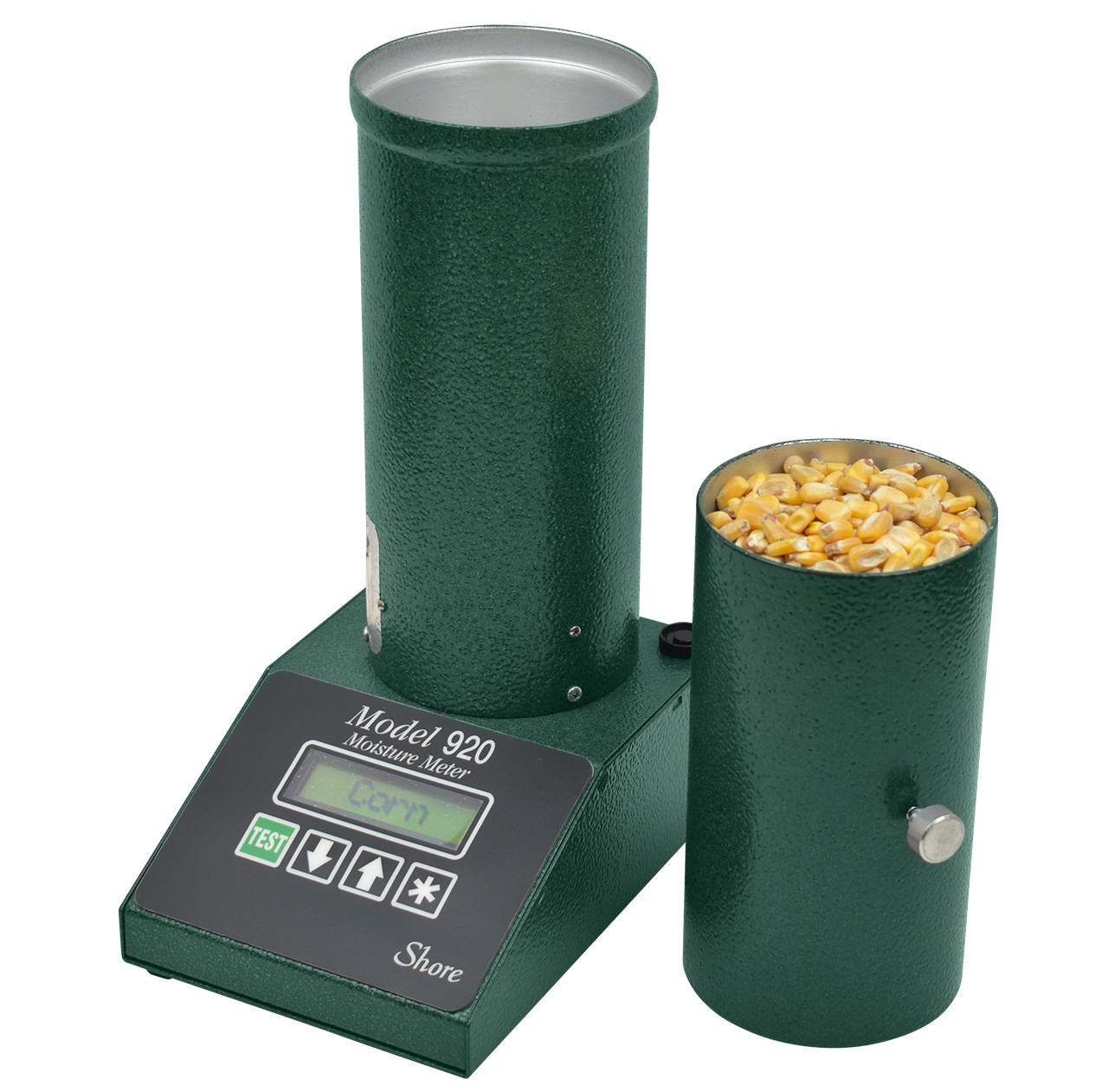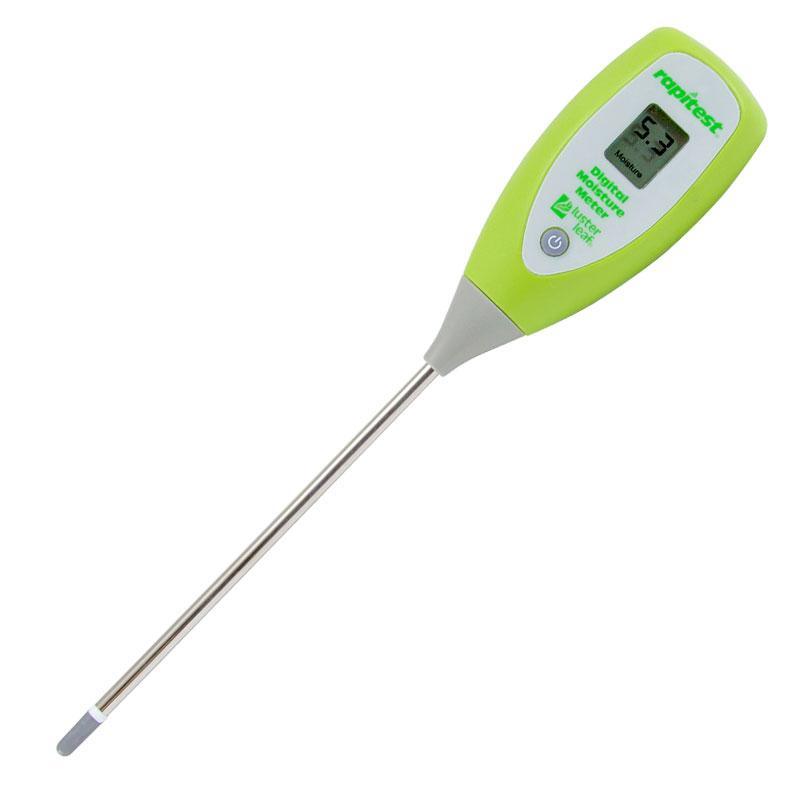Moisture Meter Reviews: Contrasting the most effective Versions for Professional and DIY Use
The Ultimate Guide to Moisture Meters: A Comprehensive Overview and Just How They Can Conserve You Money
In the realm of building upkeep, building and construction, and numerous markets, the value of precisely measuring moisture degrees can not be overemphasized. Moisture meters work as indispensable devices in identifying and keeping track of moisture content in products, helping in preventing pricey problems and making sure the quality of products. Recognizing the nuances of different kinds of wetness meters, their applications, and the prospective cost-saving benefits they provide can be a game-changer for companies and professionals alike. Discovering just how these gadgets can not only simplify processes yet likewise add to economic savings is a trip worth starting.
Kinds Of Moisture Meters
Different kinds of wetness meters are readily available for various applications in various markets. One common kind is the pin-type moisture meter, which gauges the electrical resistance in between two pins placed right into a product. This kind appropriates for wood, drywall, and other structure materials. Pinless dampness meters, on the other hand, usage electromagnetic sensing unit plates to check a bigger location without causing damages to the material's surface area. These meters are optimal for promptly examining dampness levels in big locations such as walls and floorings.
In addition, there are also specialty wetness meters made for specific materials like grain, hay, or soil. These meters give exact moisture readings tailored to the special properties of the material being evaluated. Infrared wetness meters gauge the thermal homes of a product to establish its dampness content non-invasively, making them beneficial for applications where pin or pinless meters might not be ideal. Comprehending the different sorts of dampness meters offered can help markets choose the most appropriate tool for their specific dampness dimension demands.

Benefits of Making Use Of Moisture Meters

In addition, using wetness meters can bring about increased energy performance. By identifying areas with high wetness degrees, such as leaks or inadequate insulation, adjustments can be made to enhance power preservation and reduce energy prices. In agricultural settings, wetness meters play an important role in enhancing plant returns by making it possible for farmers to monitor soil moisture levels and make informed irrigation decisions. Overall, the benefits of using moisture meters cover across various industries, offering affordable services and promoting better quality control practices.
Just How to Select the Right Moisture Meter
Choosing the appropriate dampness meter includes thinking about key factors such as product compatibility, measurement range, and calibration precision. When selecting a moisture meter, it's vital to make certain that the meter is appropriate for the particular product you will be testing. Various materials have differing electric buildings that can impact moisture analyses, so choosing a meter designed for your product is essential for exact results. Additionally, take into consideration the dimension variety of the dampness meter. Guarantee that the meter can detect wetness degrees within the variety needed for your applications. Calibration accuracy is an additional crucial variable to remember (Moisture Meter). Choose a moisture meter with reliable calibration to make sure regular and accurate analyses. Some meters might require regular calibration adjustments, so comprehending the calibration procedure is necessary. By very carefully reviewing these aspects, you can pick a moisture meter that meets your needs and gives accurate moisture measurements for your jobs.
Proper Strategies for Moisture Meter Usage
To make sure exact moisture readings and maximize the efficiency of a wetness meter, using correct techniques is important. When utilizing a pin-type wetness meter, put the pins or probes right into the product being examined until they make full contact. Guarantee the pins are perpendicular to the surface to get the most exact reading. For pinless wetness meters, hold the gadget flat against the material and move discover this info here it slowly to cover the entire area for a typical reading. It's vital to adjust the wetness meter according to the material being examined to boost precision. Take numerous analyses across the surface and typical them out for a much more reputable outcome. Furthermore, guarantee that the material being evaluated is accustomed to the environment to avoid skewed readings. Regular upkeep of the dampness meter, such as cleansing the pins or sensing unit, is likewise important to ensure consistent and exact readings. By following these proper techniques, users can count on their moisture meter to supply trustworthy moisture degrees, helping in preventing pricey damage or ensuring top quality in different applications.

Expense Savings Via Moisture Meter Applications
How can the critical use of dampness meters result in substantial cost financial savings click here for more across different industries? Wetness meters play a crucial function in price savings by stopping potential damage and making certain quality assurance in different industries. In the farming sector, moisture meters help in establishing the optimal time for gathering plants, avoiding excess or over-drying moisture that can affect the end product's high quality. This specific monitoring assists farmers stay clear of unnecessary losses and maximize their return.

In addition, in the food handling sector, dampness meters are crucial for monitoring item quality and ensuring compliance with safety regulations. By accurately measuring dampness web content in food items, suppliers can protect against wasting, keep freshness, and reduce waste, resulting in substantial price financial savings. In general, the tactical application of moisture meters is a valuable financial investment that can bring about significant expense reductions and boosted performance across various sectors.
Final Thought
In verdict, moisture meters are beneficial devices for determining and detecting wetness degrees in different materials. By using the right wetness meter and following appropriate strategies, individuals can successfully prevent expensive problems caused by excess wetness.
Dampness meters offer as vital devices in discovering and checking moisture content in products, assisting in avoiding pricey problems and ensuring the top quality of items. Infrared moisture meters determine the thermal residential or commercial properties of a product to establish its moisture material non-invasively, making them helpful for applications where pin or pinless meters might not be appropriate.Dampness meters supply invaluable advantages in accurately keeping an eye on and analyzing dampness degrees in varied products and atmospheres. In agricultural settings, moisture meters play an essential role in optimizing crop returns by making it possible for farmers to check dirt dampness degrees and make notified watering choices.In final thought, wetness meters are useful tools for determining and spotting moisture degrees in numerous materials.